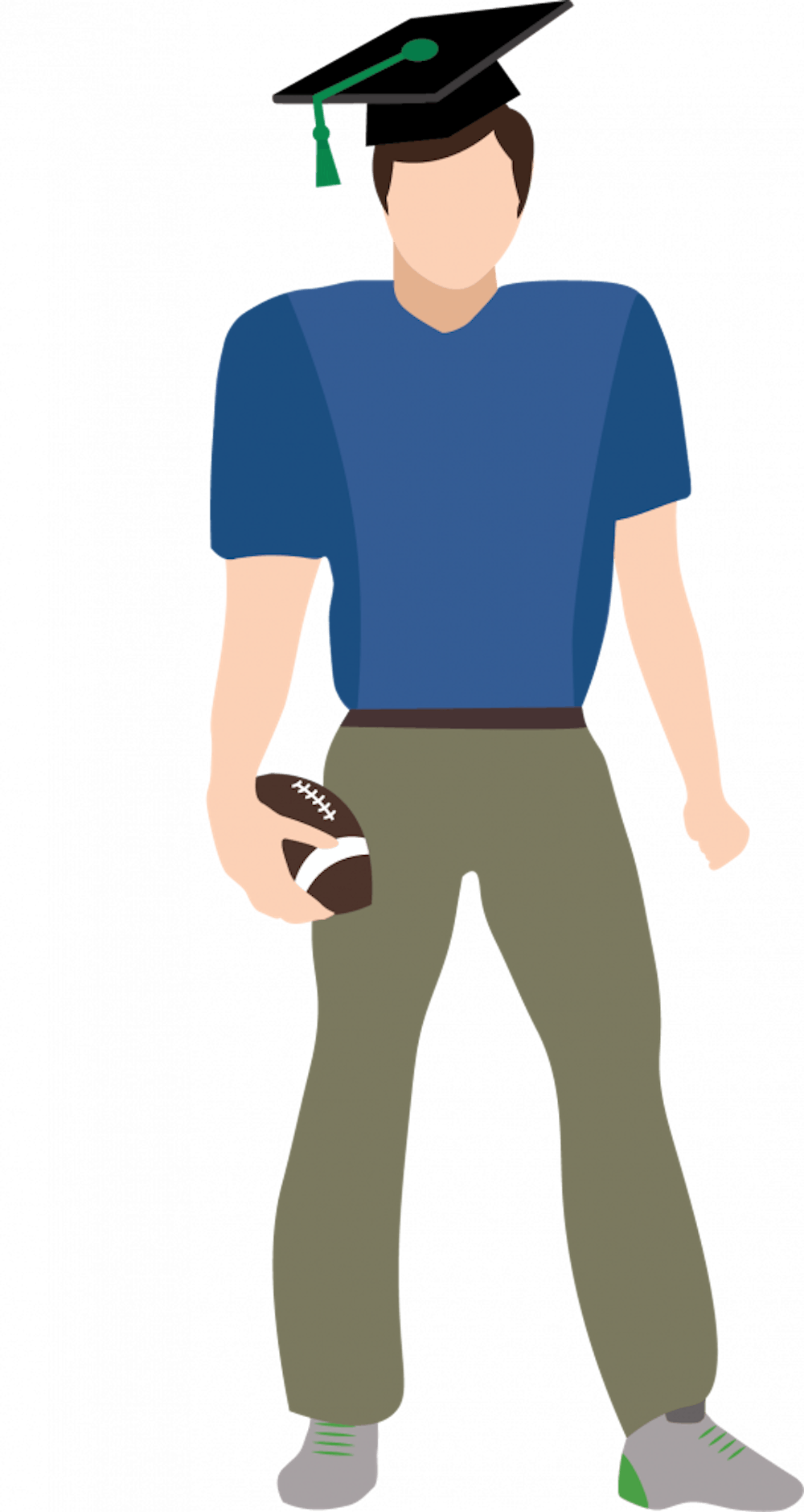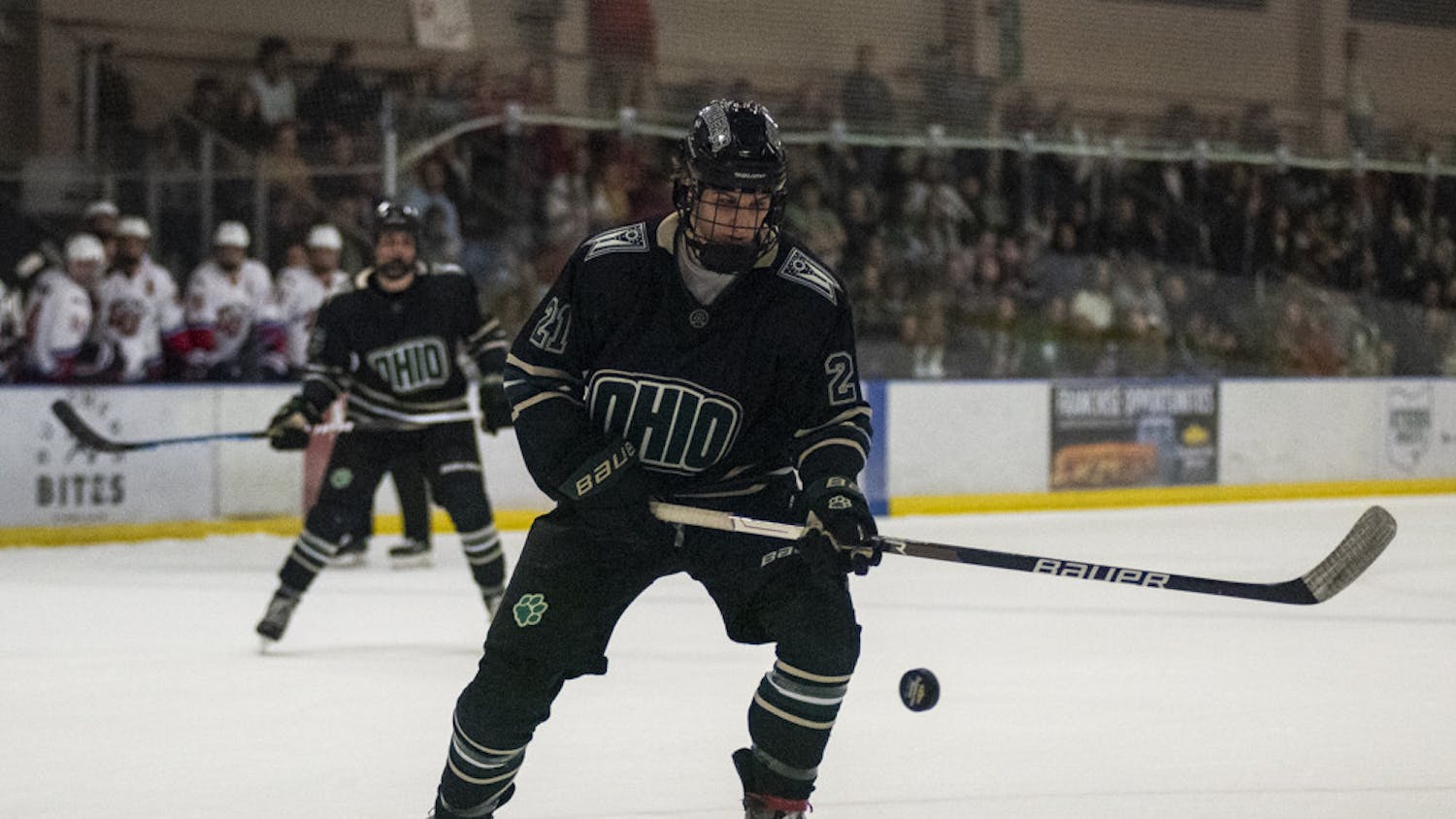Correction appended.
Starting next academic year, incoming Ohio University students who wish to pursue a degree in athletic training will have to wait until graduate school.
The change comes from a mandate by the Commission on Accreditation of Athletic Training Education, or CAATE, requiring universities across the nation to phase-out their bachelor’s programs or lose their accreditation. The mandate states that by 2022, all athletic training education must be done at the graduate level.
“This creates an opportunity for students to change their mind later in college if they decide they want to pursue athletic training," Kristine Ensign, the Athletic Training Professional Program director at OU, said. "It also gives student athletes the opportunity to study at the master's level, when it's harder to do that as a bachelor's student.”
With the new program, undergraduate students will have to take prerequisites for the master’s program and then apply to it their junior or senior year.
The final class of undergraduate students was admitted during the 2017-18 academic year, according to OU’s athletic training website.
Ensign said that CAATE’s goal is to align the athletic training program with other professions like physical therapy and occupational therapy, which require a doctorate or master’s degree before certification.
“Right now you could practice as an athletic trainer with only a bachelor’s degree and still be board certified,” Elizabeth Sares, an athletic training graduate student, said. "(CAATE) is making the transition happen for that reason."
The program plans on enrolling about 25 students per class at the master’s level, which is about the same as the current average undergraduate enrollment.
Sares, whose bachelor’s degree was in athletic training, thinks that the change is good for the profession, but she is worried that future students will not be trained as thoroughly as she was.
“The benefit of getting a post-secondary master’s degree is that you take all this knowledge that you learned during undergrad and you become even better at it and learn so many more new things," Sares said. "My concern is that in a master’s program you only have two years, as opposed to four in undergrad. I’m worried the upcoming graduate classes will go out into the real world very book smart, but not as experienced."
Troy Moeller, a freshman, is studying pre-athletic training. He plans to apply for admittance into the athletic training program near the end of this semester. If accepted, he would be in the athletic training bachelor's program for his remaining three years.
Moeller would be among the last undergraduate athletic training students who will graduate with a bachelor's degree. He is eager for the clinical experience opportunities he will have in the athletic training program, which allows students to work with university sports teams.
"If I get into the major and get to work with the football team, that would be awesome," Moeller said.
Moeller said the program's transition could make it more difficult for future students to become athletic trainers.
“It’s already really selective for students who want a bachelor’s degree,” Moeller said. "Personally, I think this change could make it harder for people to get into the program and become athletic trainers."
Ensign said the graduate program will begin enrolling students starting in Fall Semester 2019. Interested students can contact her or the Office of Applied Health Sciences and Wellness for more information.
Correction: A previous version of this report misquoted Elizabeth Sares. The article has been updated to reflect the most accurate information.






